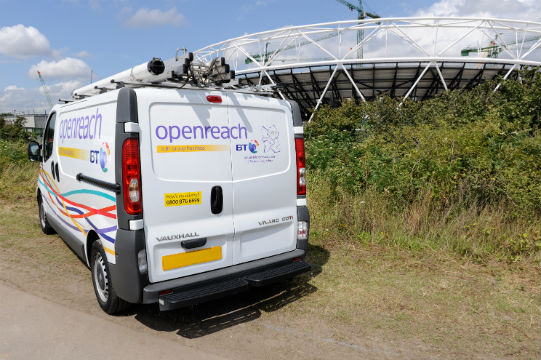BT Denies Overcharging Government Over BDUK

New report suggests that BT is inventing BDUK wholesale costs in rural areas
BT has been accused of overcharging the British taxpayer by inflating the costs associated with deploying superfast broadband to rural areas under the BDUK scheme.
According to a leaked document, officials at the Department of Culture, Media and Sport (DCMS) have been told that the communications company is inflating costs by up to 80 percent, according to the Daily Telegraph.
Up to £530m of funding is up for grabs from BDUK, with the funding received matched by local councils. This means that more of rural residents’ council tax bills could be used to fund the deployment. BT has refuted the suggestions that it is fleecing the government, telling TechWeekEurope that the claims are “ludicrous”.
BDUK rollout
 The National Audit Office now has a copy of the report, but it has been suggested by one blog that the author has been sacked as a consultant to the DCMS. The department told TechWeekEurope that it did not comment on internal matters.
The National Audit Office now has a copy of the report, but it has been suggested by one blog that the author has been sacked as a consultant to the DCMS. The department told TechWeekEurope that it did not comment on internal matters.
The document suggested BT had fabricated wholesale costs of rolling out superfast broadband to rural areas and said that if the telecoms giant’s subsidy was cut by between £400 and £500 million, the result would be the same.
Officials at BDUK have been told by the consultant behind the report that it costs BT £11,689 to install a fibre cabinet before “group costs” and that it charges £17,000 for one in a ‘generic’ rural area. This cost increases to £21,858 in a ‘very’ rural area and £30,000 in the most rural areas of the UK. The labour costs also increase according to the category of rural area.
The consultant said that these are “pseudo wholesale costs” and not based on the actual assets needed. He added that BT’s estimates were based on a take up assumption that was completely unrelated, an allegation that BT denies.
BT denial
 “BT is winning BDUK tenders precisely because it is committing extra funds to improve broadband access in those counties. These funds are in addition to our commercial investment of £2.5 billion,” said a BT spokesperson. “”It is ludicrous that some people are suggesting that we are trying to pass on the full cost of deployment to our public sector partners. In fact, we are looking at a low double digit year payback in these areas even when the public funds are taken into account.”
“BT is winning BDUK tenders precisely because it is committing extra funds to improve broadband access in those counties. These funds are in addition to our commercial investment of £2.5 billion,” said a BT spokesperson. “”It is ludicrous that some people are suggesting that we are trying to pass on the full cost of deployment to our public sector partners. In fact, we are looking at a low double digit year payback in these areas even when the public funds are taken into account.”
BT and Fujitsu are the only two companies that signed up to a framework agreement with the government last July, which gives councils a quick way to carry out their BDUK tendering process. Councils can use other providers, but they must set up their own procurement process and hope that the government backs it.
Yet BT has so far won all BDUK-based contracts, and in some cases, has been the only bidder. This has attracted the attention of the European Commission, which is investigating the process.
Are you fluent in the language of the Internet? Find out with our quiz!